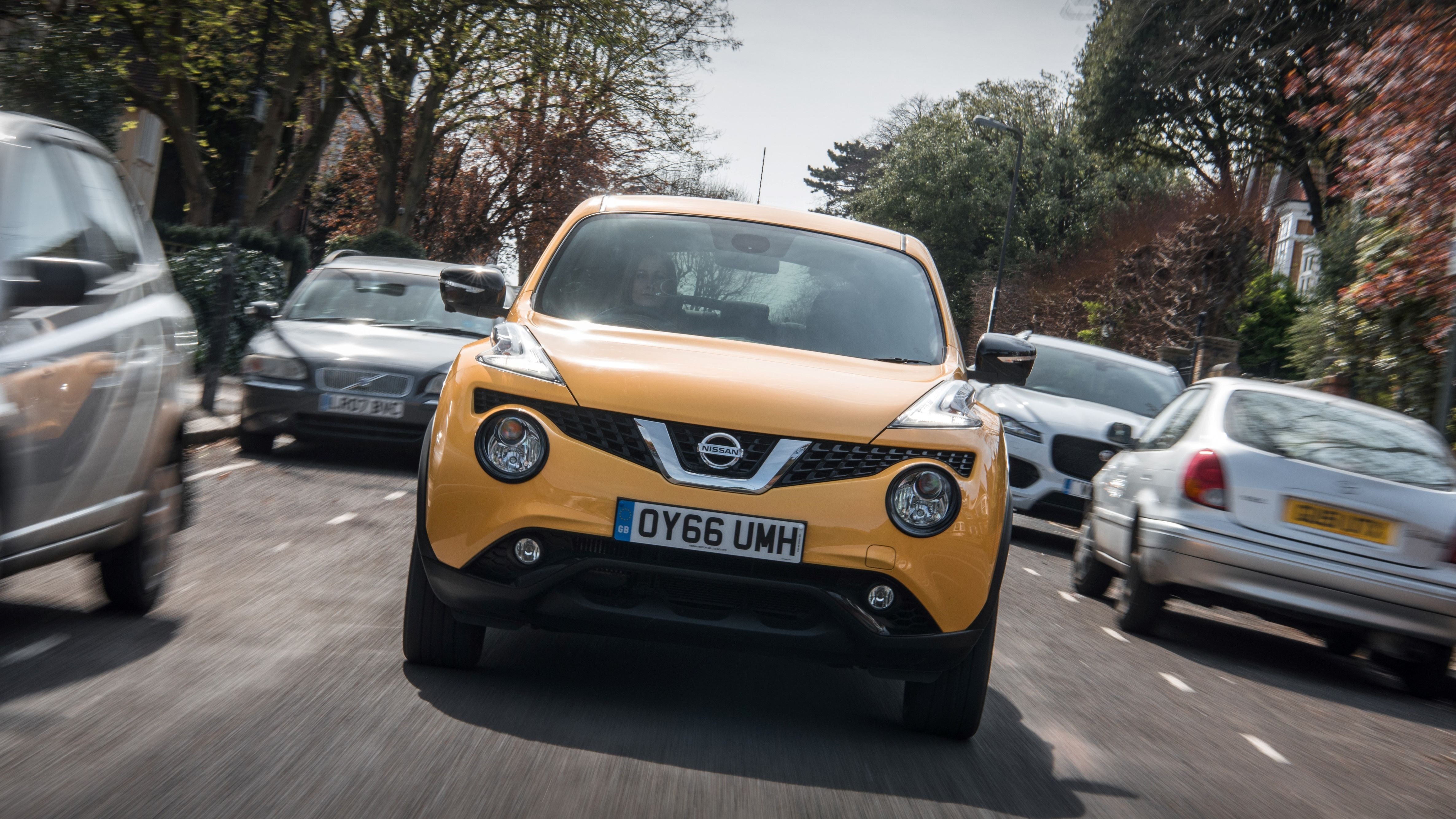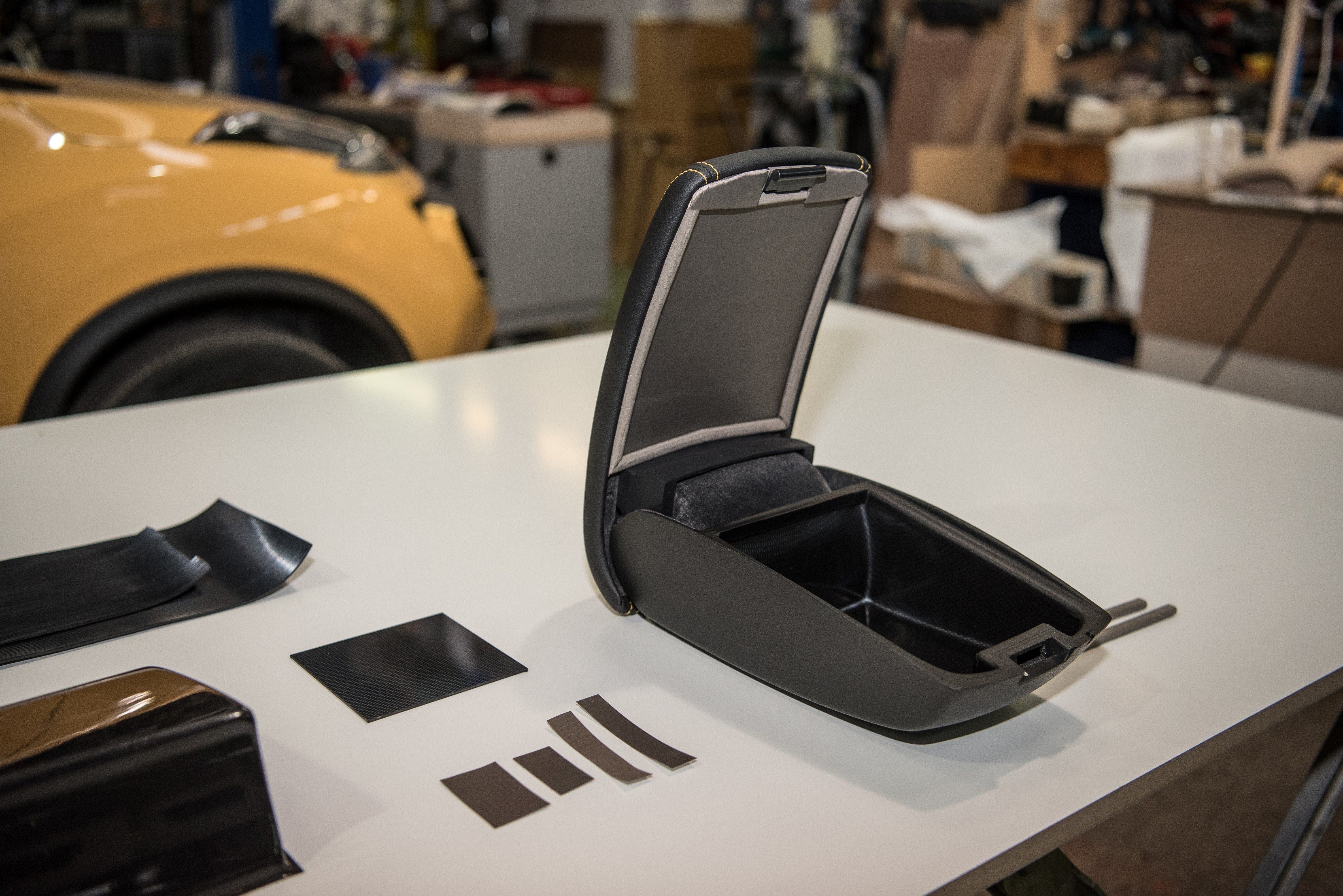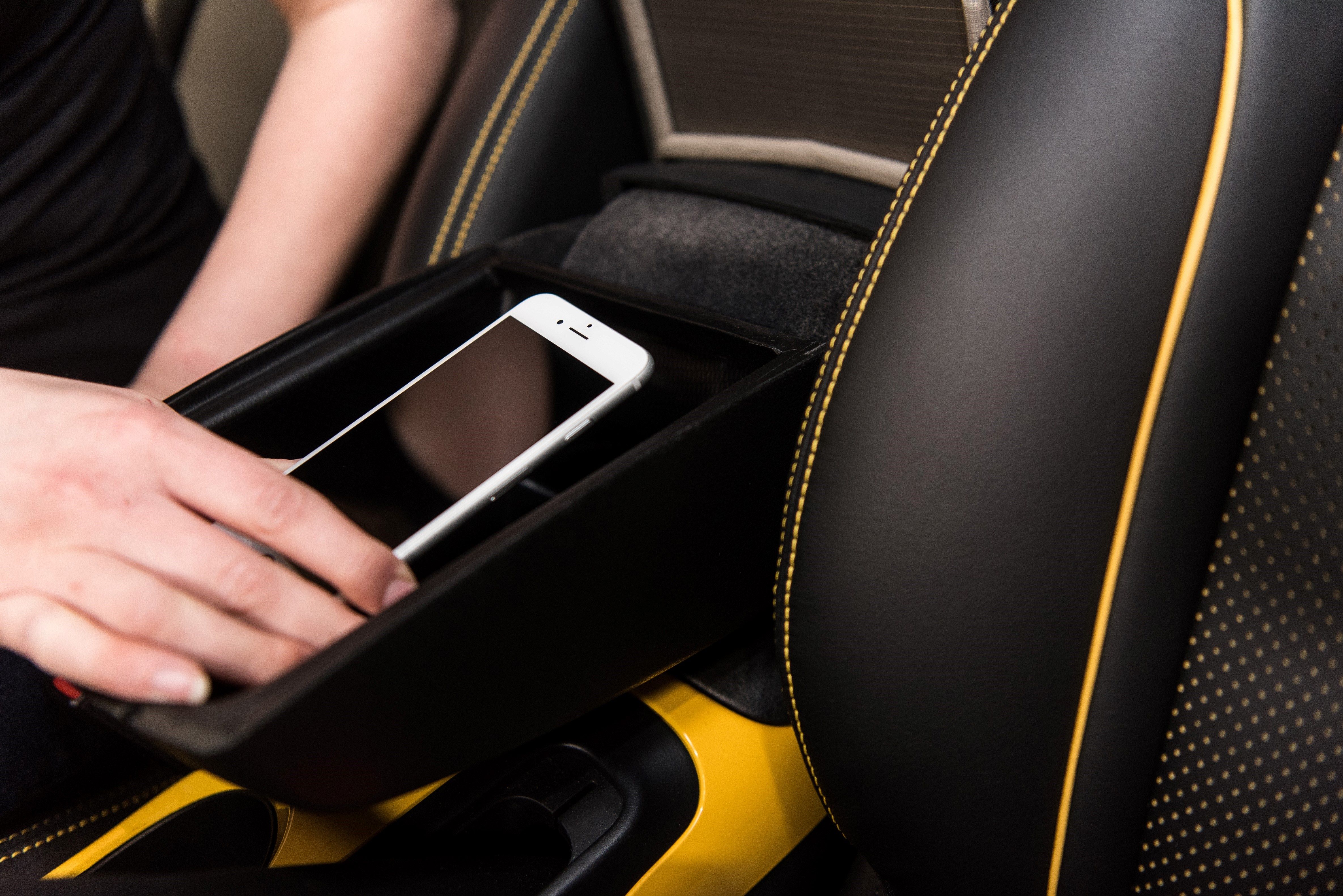With the current global climate and World War III seemingly around the corner, you’ve probably heard a lot of talk about Faraday cages lately. If you haven’t, you must not know a single “prepper.” You're probably also blind to the potential chaos an EMP device could cause if detonated over our country and why this old technology could be your best friend. To put things simply, a faraday cage is a container surrounded by a continuous covering of conductive material that is also insulated on the inside. Electrical current – or in this case, cellular signals – are unable to reach any electronic device placed inside of it. So, what does this have to do with texting and driving, or Nissan? Well, Nissan has just announced a new conceptual idea known as the “Nissan Signal Shield” for the upcoming Nissan Juke that would integrate a Faraday cage into the central armrest.
The idea behind this conceptual idea is to cut back on texting and driving by preventing cellular signals from even getting to the phone in the first place. If you can’t get that text or phone call, you can’t be distracted by your phone while you drive either, right? Nissan seems to think it might be the magic trick. But it’s not all peaches and cream, even if you’re all for some phone-free time on the road. See, we’ve all come to rely on Bluetooth and Wi-Fi connectivity for things like hands-free calling or audio streaming. Some infotainment systems even allow you to use certain phone apps, including navigation, right on their built-in touchscreen. But, if you put your phone inside the Nissan Signal Shield, all of that becomes a thing of the past – electrical current or cellular signal can’t get in or out. Of course, you would still be able to stream music stored on the phone via an auxiliary cable, or in some cases, a USB cable, but you’re going to have to live without your favorite online playlists. Is it a fair tradeoff?
Continue reading for the full story.
Old Technology Creates New Solutions
Let’s not beat around the bush here – distracted driving in an increasing problem, and it’s only getting worse. We continue this relentless love affair with constant communication, Facebook browsing, and Tweeting our favorite celebrities, and it’s so bad that we can’t stop it even for a 20-minute drive across town. And, the worst part is that we know that doing it while driving poses a serious risk to not only ourselves but others on the road as well. With that said, it’s quite possible that this technology could really help prevent distracted driving. Not only will it block you from receiving any calls or messages, but you can’t argue with the old saying “out of sight, out of mind,” right? Well, maybe you can. See, this idea is a good one, but how many people will actually be able to take it upon themselves to actually put the phone down? Need I mention the Pokemon Go craze that resulted in people walking into traffic?
A Small Lesson
The Faraday cage was invented way back in 1836 by Michael Faraday. Because of the conductive material on the outside of the cage, electric current can’t pass through the cage to affect anything that’s inside of it. And, believe it or not, a Faraday cage might be even closer to you than you might think. The concept really simple – a galvanized metal garbage can wrapped in a bunch of layers of aluminum foil will do the trick, as long as it’s insulated with something on the inside too. If you know a prepper, you might find him storing things like shortwave radio, batteries, or even walkie-talkies inside of these makeshift cages, just in case an EMP is detonated over the United States. And, believe it or not, this will actually work to prevent electronics from being destroyed by an EMP, but it doesn’t take all of that galvanized metal and multiple layers of aluminum foil to make the Nissan Signal Shield work. A simple layer of foil built into the armrest pocket will be enough to prevent signals from getting to your phone. Want to try it out for yourself? Wrap some aluminum foil around your phone and completely enclose it, then try to call it. Bet you that call doesn’t come through.



